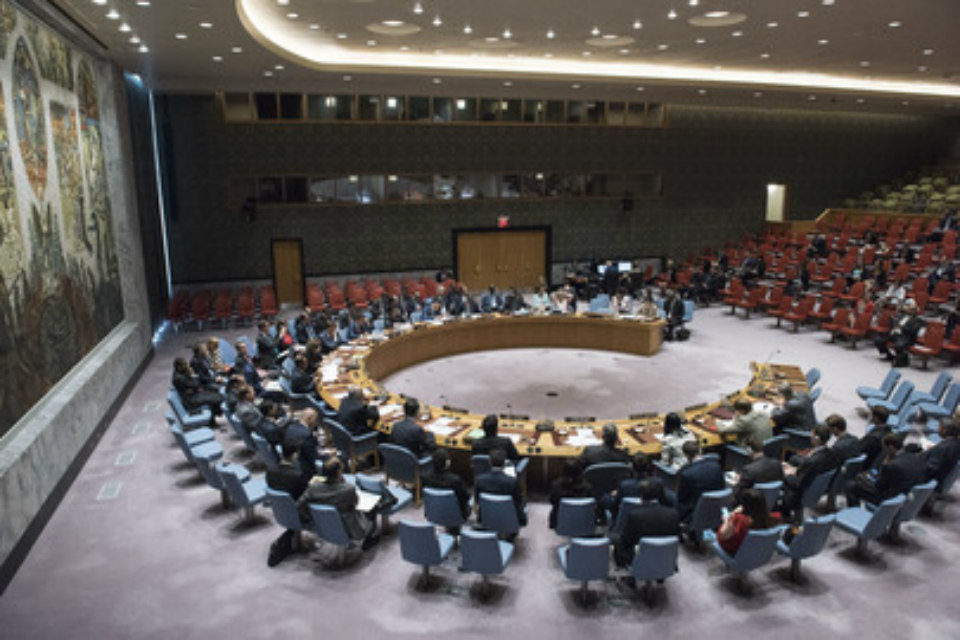"It is clear that the threat facing civilian aviation has not diminished."
Statement on aviation security by Ambassador Jonathan Allen, UK Deputy Permanent Representative to the United Nations, at the Security Council Briefing.

Thank you Mr President and may I thank Secretary-General Liu and Ambassador Aboulatta for their briefings, which were both informative and I thought contained some important recommendations for us all to take note of. So thank you for those.
A year ago, this Council met to pass the first ever resolution on the terrorist threat facing civil aviation. Through that unanimous adoption, we showed our joint resolve to protect our citizens from a shared and escalating threat. And we started a global discussion on how together we would improve aviation security standards.
So we welcome the good work that followed over the past twelve months. It speaks volumes of the momentum created by resolution 2309 that the Global Aviation Security Plan was completed two years ahead of the original schedule. And we look forward to the plan being endorsed later this year by the International Civil Aviation Organisation Council. We believe that this council should then add its endorsement and call to action.
And yet, one year on from 2309, it is clear that the threat facing civilian aviation has not diminished. Instead, it has evolved. You will recall the plot to smuggle bombs inside laptops which led the UK and US to ban larger electronics from cabins of aircraft for several months this year. Or the failed attack at Sydney’s international airport just two months ago - a sophisticated effort that would have claimed hundreds of innocent lives.
These are but two examples of the terrorists’ unrelenting desire to bring death and destruction to our skies. These plots should remind us all we cannot relent in our efforts to keep our citizens safe.
Instead, we need to maintain the resolve we found a year ago. This means each and every ICAO Member State turning their commitment to the Global Aviation Security Plan into real action. Lip-service is simply no deterrent. Those who believe that their airports and carriers are somehow immune from terrorist targeting are not just wrong, they’re also irresponsible, shirking both their obligations and the common responsibility we have to protect the global industry and our peoples who use it. Aviation is part of the lifeblood of our economies.
We recognise that implementing ICAO’s agreed standards - and doing so on the basis of recommended practices, validated by robust verification – is a challenge for some, no matter how good their intentions. So let us support each other through technical co-operation and capacity development as spelled out in 2309. The UK has recently tripled its budget for such assistance and has an active programme working alongside dozens of fellow Member States. I call on other Council members to do the same.
And it’s not just ICAO members who can do more. I see three ways for the United Nations, together with ICAO, to work better to ensure that aviation security remains at the top of the agenda, getting the attention it requires.
Firstly, threats to aviation security should be routinely included in UN reporting related to terrorism. We encourage the Al-Qaeda and Daesh Monitoring Team to make sure that they ask states about threats to aviation security and that these are properly assessed in the team’s regular reporting.
Second, we welcome the close cooperation that has developed between CTED and ICAO. These two agencies already work together closely and are developing a cooperation agreement. We encourage continued collaboration on CTED country assessments, but also on sharing information, research, and analysis about the emerging trends in terrorist threats to civil aviation, and also cutting-edge ways that they can be mitigated.
And third, we encourage the new UN Office of Counter Terrorism to work closely with ICAO and make capacity-building in aviation security a priority. We encourage them together to identify and deliver appropriate capacity-building projects in line with the actions and tasks set out in the Global Aviation Security Plan.
In conclusion, Mr President, the first anniversary of 2309 is a moment in part to reflect on what has been achieved over the last year. But it needs to be far more than that. It should also be a moment when we ask how we sustain the momentum created by 2309, by putting into practice what we have committed to on paper.
Thank you.